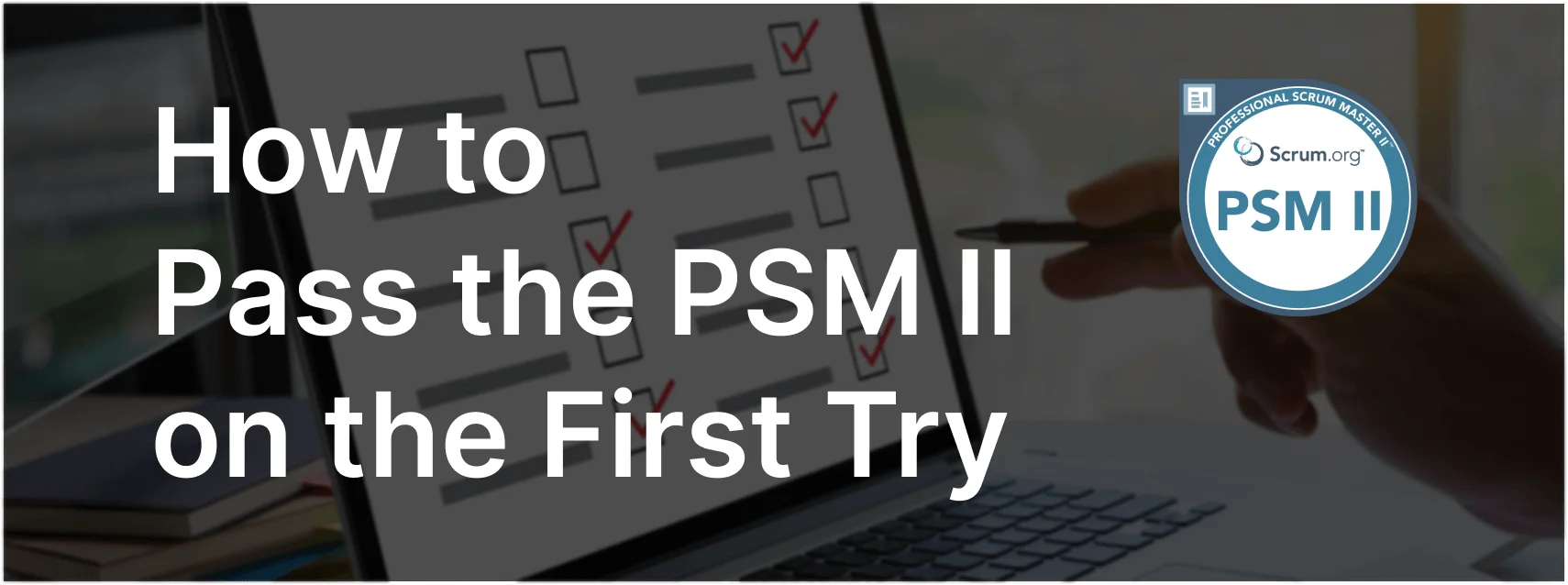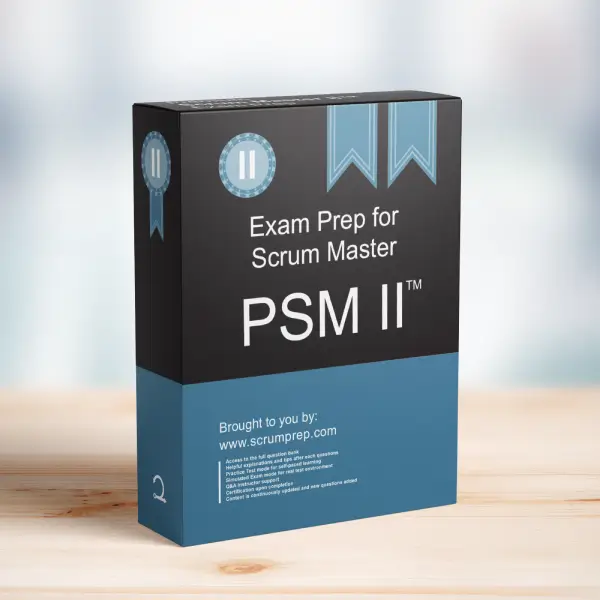Addressing Concerns about Meeting Sprint Commitments in a New Scrum Team
In Scrum, it’s common for new teams to face challenges in meeting their Sprint commitments. This article explores a specific exam question about how a Scrum Master should handle concerns from the Product Owner regarding the Developers’ ability to deliver the selected Product Backlog items. The article provides detailed explanations and insights relevant to the PSM II exam.
Exam Question
You are the Scrum Master of a Scrum Team that is new to Scrum. The Product Owner comes to you halfway through the Sprint and says, “I don’t feel like the Developers will be able to meet their commitment to deliver the Product Backlog items selected during Sprint Planning.” What should you do in this situation? (choose the best answer)
- A. Talk to the Developers. Challenge and inspire them to complete all of the work so that they meet their commitment to the Product Owner and have the forecasted velocity.
- B. Coach the Product Owner that with complex software development, you cannot promise the entire scope that was forecast during Sprint Planning. As more is learned during the Sprint, work may emerge that affects the Sprint Backlog.
- C. Advise the Product Owner that the Developers own the Sprint Backlog and it is up to them to meet their commitments. No one tells the Developers how to turn Product Backlog into Increments of potentially releasable functionality.
- D. Add more people to the Scrum Team to meet the Product Owner’s expectations.
Correct Answer
B. Coach the Product Owner that with complex software development, you cannot promise the entire scope that was forecast during Sprint Planning. As more is learned during the Sprint, work may emerge that affects the Sprint Backlog.
Explanation
Correct Answer
B. Coach the Product Owner that with complex software development, you cannot promise the entire scope that was forecast during Sprint Planning. As more is learned during the Sprint, work may emerge that affects the Sprint Backlog: In Scrum, the focus is on delivering value through iterative and incremental development. The Scrum Master should coach the Product Owner on the nature of complex software development, where new insights and work may emerge during the Sprint. This understanding helps manage expectations and supports the team’s ability to adapt to changing conditions.
Incorrect Answers
A. Talk to the Developers. Challenge and inspire them to complete all of the work so that they meet their commitment to the Product Owner and have the forecasted velocity: This approach may put undue pressure on the Developers and does not address the reality of emergent work in complex projects. It may lead to lower quality and burnout.
C. Advise the Product Owner that the Developers own the Sprint Backlog and it is up to them to meet their commitments. No one tells the Developers how to turn Product Backlog into Increments of potentially releasable functionality: While it is true that Developers own the Sprint Backlog, the Scrum Master should facilitate better understanding and collaboration rather than deflecting the concern.
D. Add more people to the Scrum Team to meet the Product Owner’s expectations: Adding more people mid-Sprint is not a practical solution. It can disrupt the team’s dynamics and does not address the root cause of the issue. In Scrum, the team is expected to work with the resources they have planned for.
Responsibilities in Scrum
- Product Owner: The Product Owner is responsible for managing the Product Backlog and ensuring that the highest value items are prioritized. They collaborate with the Scrum Team to clarify requirements and manage stakeholder expectations.
- Scrum Master: The Scrum Master facilitates collaboration, ensures adherence to Scrum practices, and supports the team in becoming self-managing. They coach the Product Owner and Developers to foster better understanding and effective communication.
- Developers: Developers are responsible for delivering potentially shippable increments at the end of each Sprint. They self-manage by planning, executing, and adapting their work collaboratively, based on what they learn during the Sprint.
Relevance to the PSM II Exam
Understanding how to manage expectations and address concerns about Sprint commitments is crucial for the PSM II exam. It demonstrates advanced knowledge of Scrum principles and the ability of the Scrum Master to coach and guide the team effectively. Mastering this concept ensures that Scrum Masters can support their teams in delivering value and maintaining a sustainable pace of work.
Key Takeaways
- In complex software development, emergent work is expected, and the scope cannot always be promised as forecasted during Sprint Planning.
- The Scrum Master should coach the Product Owner and team to manage expectations and adapt to new insights during the Sprint.
- Adding more people to the team mid-Sprint is not a practical solution and can disrupt team dynamics.
Conclusion
Effectively managing concerns about meeting Sprint commitments requires a deep understanding of Scrum principles and the ability to coach the Product Owner and team. By addressing the nature of emergent work and fostering better communication, the Scrum Master helps the team deliver value while maintaining realistic expectations. Understanding these principles is crucial for effective Scrum implementation and success in the PSM II exam. For comprehensive preparation and practice exams, check out PSM II Exam Prep to enhance your understanding and application of Scrum principles.



